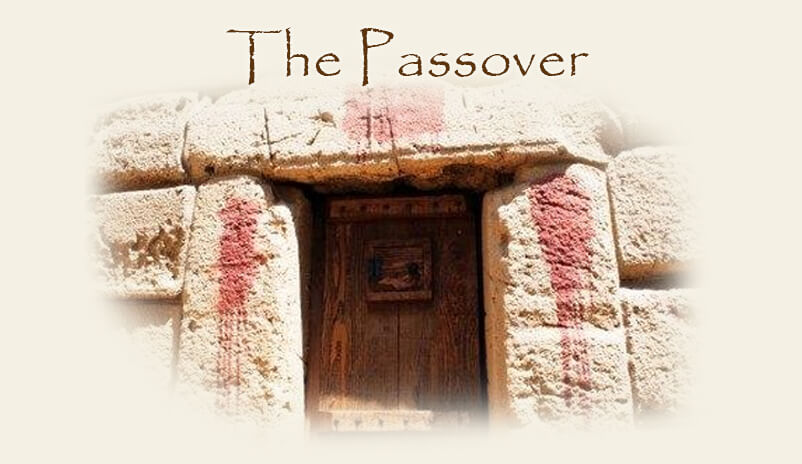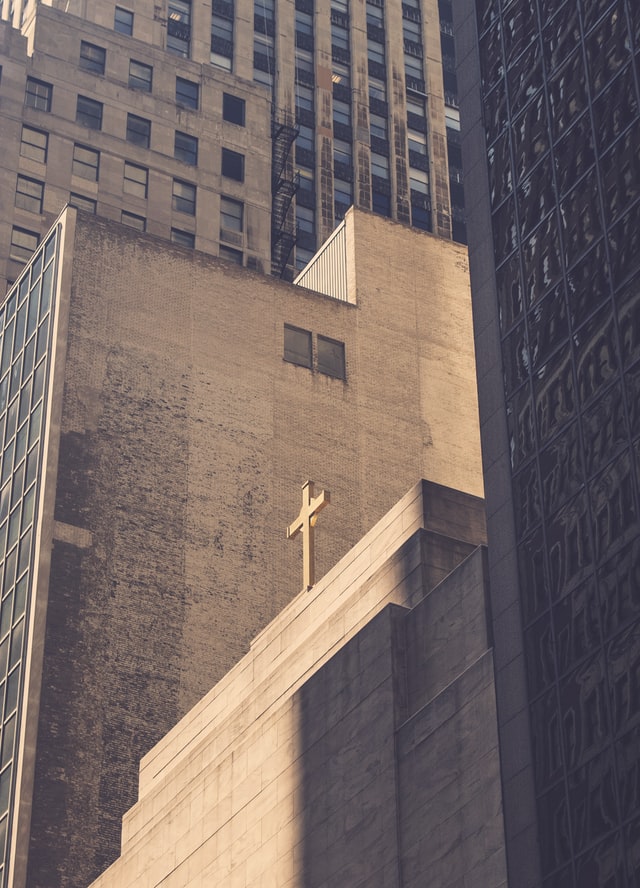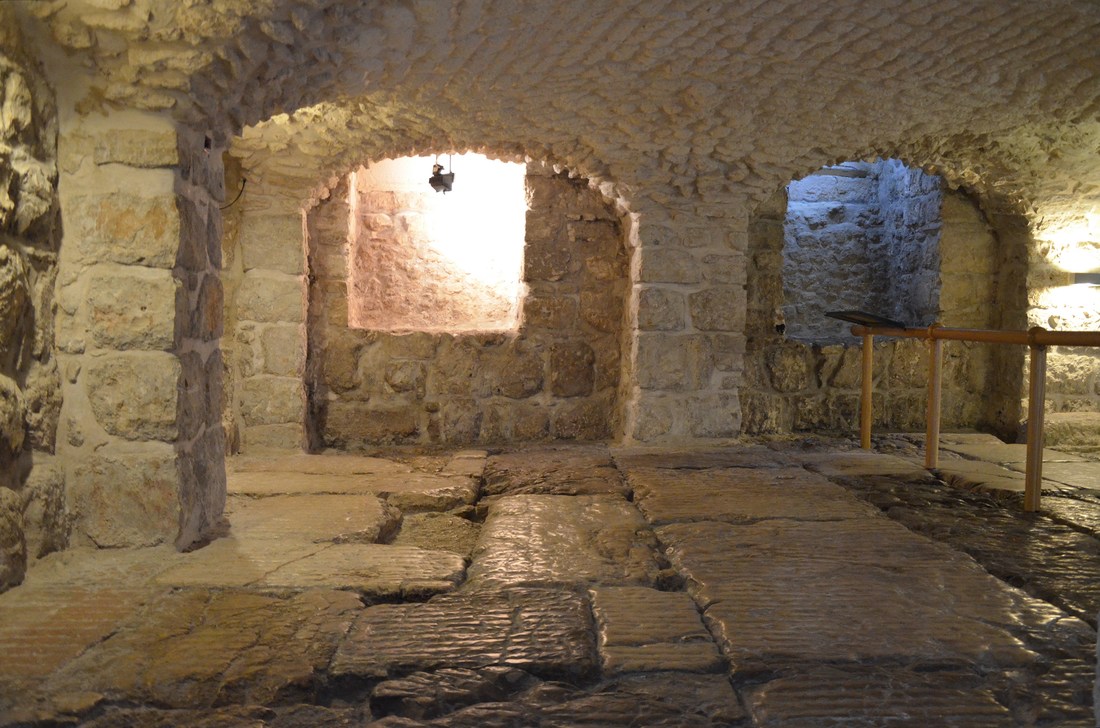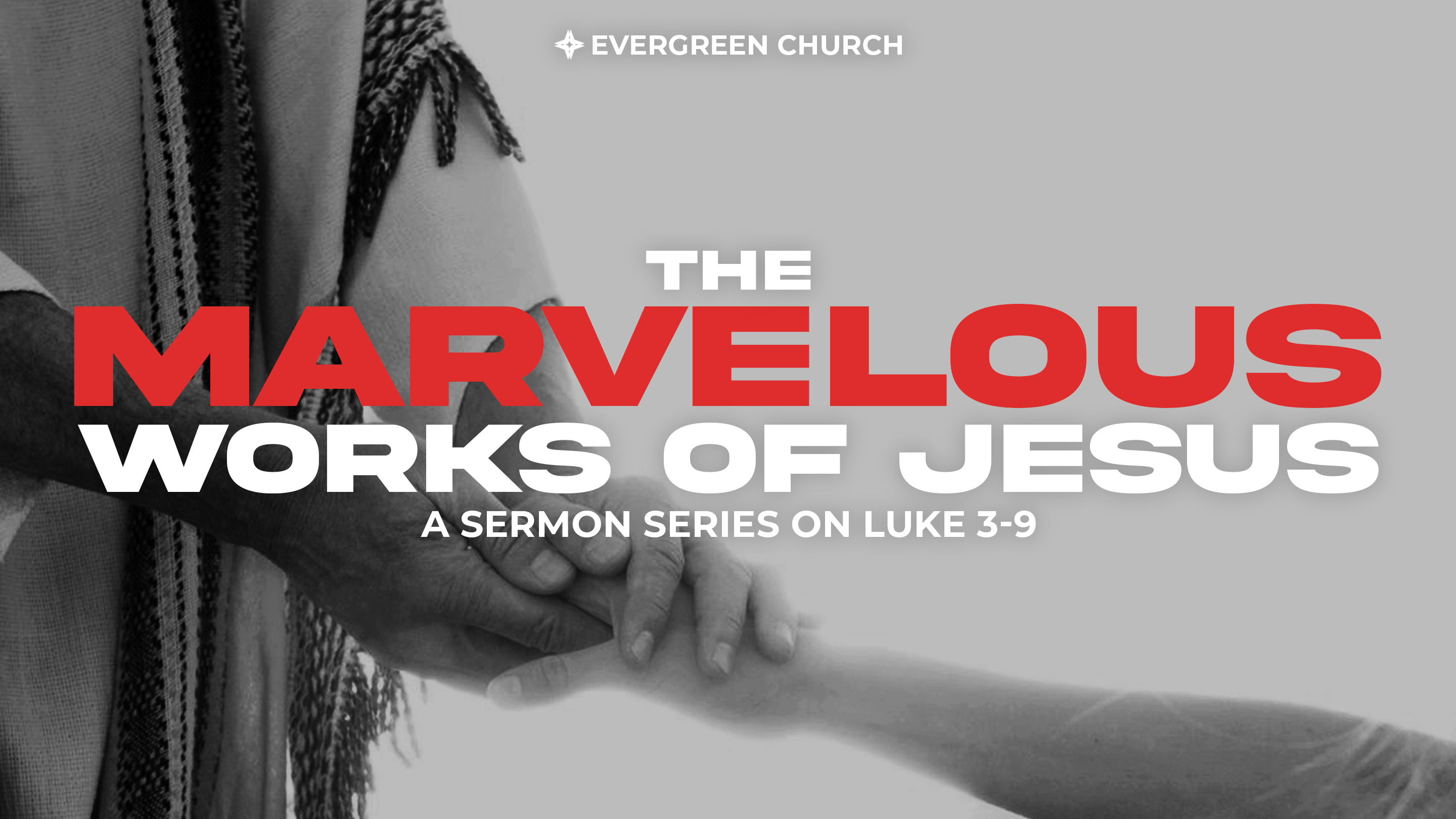
[Listen to an audio version here]
Last year for the 4th of July, I decided that I would work. I would drive Uber. My first ride took me from Sevierville to Knoxville, so I decided I would just stay in Knoxville instead of driving back. I drove all over the city of Knoxville. I went down all sorts of side streets. What was amazing there was that even though fireworks were illegal in Knox County, everyone was doing fireworks. There were celebrations everywhere! I picked people up at large family gatherings, gatherings of friends, and city events. It was a great atmosphere, and I really enjoyed it.
One man, however, didn’t have a great time. He felt completely betrayed by his family. He cussed and swore about them for the 15 minute ride from his family gathering to his home. He explained to me over and over the wrongs that he perceived that his family had committed. Now, this man was no Jesus, and I don’t know what his family did or didn’t do, but it still illustrates this point: betrayal really hurts. When we feel that those whom we are close to are turning on us, it is extremely painful.
In this passage, we have a sort of July 4th of Israel. It was a celebration of their national liberation. But how does this story begin? With a betrayal!
The Betrayal that led to the Sacrifice
If we are to understand the Passover, then we should understand Israel would have seen it as a sort of July 4th, an Independence Day. Egypt had enslaved the people of Israel and even put to death their male children. But God had liberated them from this slavery and brought them to the land of Canaan. It was a day to remember.
Many of the Jews would celebrate this day by going up to the temple in Jerusalem. That’s where the big celebration would take place. People would gather from all over the world to enjoy their day of national independence. But when they got there, they had a problem. Celebrating their independence, they would see the signs of their lack of independence. They would see the evidence of the tyranny of Rome like the Roman governor and the Roman soldiers. So, you can imagine that this might be a volatile situation. The Roman authorities probably would not like this celebration very much.
What is interesting is that even the chief priests and the elders of Israel were afraid of the people. They wanted to get rid of Jesus. The people regarded Him as a prophet or more, and they were afraid to act because of the people. That’s what they were thinking about as the Passover approached. They knew Jesus would come and wanted to get rid of Him. So, what were they to do?
When we hear the name Judas, we cannot think of anything but evil. However, remember that this was one of Jesus’ close companions. They had spent day and night together for 3 years. They were close.
Satan entered Judas, but I imagine that Satan used some feelings of bitterness that were already there. Other parts of the account of Jesus indicate this. I wonder if Judas was looking for someone to liberate them from Rome and restore their independence. That’s what most of the people were looking for. Over time, Judas may have begun to think that this was not going to happen through Jesus and given up on Him.
So, he went to the chief priests in order to discuss with them how he might betray Jesus and hand them over to them without the people seeing it, “when no crowd was present” (v. 6), as our text says. The leaders even agreed to give Judas money in order to do this, and so he became the greatest traitor in the history of the world, betraying the best human being who had ever lived for a few pieces of silver. But, let’s not forget that Jesus washed his feet.
The Passover Lamb to be Sacrificed
The next verse takes us back to the Passover. It says, “Then came the day of Unleavened Bread on which the Passover lamb had to be sacrificed” (Luke 22:7). Luke draws our attention to a key but easily forgotten part of the Passover. It was the sacrifice of the Passover lamb.
The sacrifice of the Passover lamb is extremely instructive and has everything to do with what will occur in the rest of the book of Luke. The Passover lamb was sacrificed because of the 10th plague on Egypt. There were 10 plagues that devastated Egypt because they refused to let the people of Israel leave their land. The 10th plague was the death of the firstborn of the land. However, death was going to come not only on the Egyptians. It would come on the Israelites as well. The only way of escape was to slaughter a lamb and put the blood on the doorposts of their house. They would be saved by the blood of the lamb.
Now, this might have been a hard message to hear. Sometimes, in the conflict of the nations, it is difficult to know who is right and who is wrong. However, in the case of Egypt and Israel, this was not the case. Egypt was clearly the aggressor, and Israel was the victim. Egypt was unjust, and Israel did not deserve what they received from them. So, Egypt was in the wrong. However, the Passover lamb said that all have sinned, and all need forgiveness before God. That might have been hard to hear.
Think about the situation with Ukraine. Rarely has there been a war where one nation is so obviously in the wrong. Ukraine was trying to live as an independent nation, and Russia has tried to gobble it up in a brutal way. Russia is clearly in the wrong. However, this does not mean that Ukraine has no sin. The Passover lamb teaches us that all have sinned and are liable to God’s judgment. It is only by the blood of the lamb that they are saved. In the face of an unjust attack, this might be a hard message to hear.
That’s what Jesus was facing. Israel felt unjustly attacked and conquered by Rome. A message that all had sinned and were in need of God’s grace might not have been popular. Indeed, many of Jesus’ contemporaries didn’t like it at all. The idea that Rome could be forgiven and find grace was something they liked even less.
However, Jesus knew what the Passover was all about, and he was eager to partake of it with His disciples. He had arranged for a place for them, and through a series of signs, He was able to get to a place where he could eat the Passover with His disciples. So, like so many that night, Jesus gathered with His disciples to eat the meal. There, He told them what the Passover was really all about.
To understand what Jesus is doing, think about the fact that this is the last time of fellowship with the disciples before His death. I have observed many funerals and participated in many. One thing that is always powerful is when someone can talk about the last things that someone said. Many at the funeral might not have been able to hear those words. It was moving to me to hear from the woman who was with my Grandma when she died this past November. This woman sang hymns to my Grandma throughout the night. It was comforting to know that she was there. For me, I remember one of the last times we spoke. It had been a while since we talked. She said at the end of the conversation, “It’s amazing to me that even if you don’t talk for a while, how easily old friends can pick up where they left off.” That has stuck with me. It made an impression on me to see how she regarded our relationship, and it’s something that will stick with me as long as I live.
That’s what we see here with Jesus. What Jesus did was to take the bread and the cup of the Passover and to give them new meaning. Why didn’t He take the lamb? I think because He was making things easier for us. He wanted the new Passover, the Lord’s Supper, to be easy and transportable so it could easily go out into all the world. That’s why He took up the bread and the wine. He also didn’t want to use literal blood. Once the blood of Christ had been shed, there would be no longer any need for shedding of blood. The sacraments of the New Testament are bloodless.
So, He took the bread, and He said, “This is my body given for you; do this in remembrance of me” (Luke 22:19). His body was given or handed over for you, so that you might never have to be given over for your sins. This bread will represent His body that would be the sacrifice.
Then, He took the cup that he had already poured out and handed to them. “This cup is the new covenant in my blood, which is poured out for you” (Luke 22:20). His blood is going to establish a new covenant, a new arrangement between God and man. The cup and the fruit of the vine within it would represent that. Consider the wonderful significance of this. The first covenant of God and man was that man was to obey and live. If he did not, then he would face death. But all have sinned. So, how can we find life? There would be a new covenant. Jesus would suffer as a sacrifice for our sins. He would face the death that we had to face so that we could live. He would become a curse for us so that we might receive endless blessing. That’s the amazing new covenant. He gives everything, and we get everything, as we will see in a moment.
Let me stop, though, and talk about this sacrament for a minute. Jesus said to them that they were to do this in remembrance of Him. They were to keep doing it as a way of remembering Jesus. So, this should be very significant to us.
To understand this, just think of something that you have received that reminds you of someone else. When I was a young boy, there was exciting news in the family. My Grandpa had gotten a dog. He named it Winston. It was a bulldog. Now, the thing about Winston was that he never moved. He was a statue. However, I just remember all the family laughing about it and enjoying the fact that my Grandpa had gotten this dog. It captured my imagination, too. Now, thanks be to God, my Grandpa is still living and doing well. However, as he’s gotten older, he’s needed more help, so he went to live in a small apartment in my Uncle’s house. He had to downsize. My parents asked me if I wanted anything of his. I said, “I want Winston,” whom I had seen in the apartment he was moving from.
Now, I have heard people speaking of the Lord’s Supper as a memorial and saying, “It’s not just a memorial.” But, what we must remember is that a memorial is not just a memorial. It is powerful. Winston is sitting in a corner of my living room, and, in and of itself, he is not worth much. However, it has a certain power. Every time I see him, I think of all my family reunions and the joy of connection with my family and the legacy of my Grandfather and Grandmother. It’s not “just a memorial.” It has a power. That’s how we should think of the Lord’s Supper. It’s what Jesus has left for us to remember Him. If our human memorials have power, how much more this one with the power of the Holy Spirit behind it?
What an amazing moment! What an intimate and glorious time with the Savior! And what happens after this beautiful moment? A fight breaks out. Have you ever had that happen? You are having a beautiful moment with your friends or family. Then, someone says something that offends someone, and they all start fighting. Some join in. Others slowly back away or just shut their mouths, looking at the other people who are shutting their mouths with concern. It may give us some measure of assurance to know that even Jesus experienced such fighting at the table.
The Benefits of the Sacrifice
Now, we have to note that the fight is occasioned, not caused, by Jesus Himself. After telling them of the New Covenant, He said, “But the hand of him who is going to betray me is with mine on the table. The Son of Man will go as it has been decreed. But woe to that man who betrays him!” This increases their anxiety dramatically. “They began to question among themselves which of them it might be who would do this” (v. 23).
Then, as the anxiety increased, they all started to wonder about their place and position. “A dispute also arose among them as to which of them was considered to be greatest” (Luke 22:24). Here Jesus is facing His greatest trial, and His disciples are fighting with one another.
Jesus used this occasion, however, to teach them something about what His sacrifice meant. Sometimes, Jesus brings us into situations in which our anxiety increases in order to teach us the true solution to anxiety, which is trust in the benefits that flow from His sacrifice.
In order to understand this, we need to think about why people dispute about who is the greatest. They do it because they are concerned about their position and situation. It’s just like us. When we perceive that others slight us or don’t give us attention, we worry about it. We worry about our reputation. We worry what others will think. We worry that others will take from us.
However, Jesus used this occasion to teach them about three benefits of His death. First, Jesus told them that He was conferring on them a kingdom. Jesus told them that, in a way, they don’t really need to worry about their position. He was giving them a kingdom! Their place and their honor was secure. Even if others don’t honor us, our honor is secure with God!
Jesus went on to explain. The people of the world want to be the people who are recognized as great. Jesus told them that He had come to serve. It’s not mentioned explicitly here, but Jesus had just washed their feet as a servant of the house would. That’s what they should focus on, too. Why? “I confer on you a kingdom, just as my Father conferred one on me, so that you may eat and drink at my table in my kingdom and sit on thrones, judging the twelve tribes of Israel” (Luke 22:29–30). In other words, don’t worry so much about what you will get from others. Don’t worry if you don’t get the houses or the vacations or the cars or the recognition or the place. You are getting a kingdom! You eat at the king’s table! That’s what the Lord’s Supper means. You don’t need to worry so much about your reputation, about your future, about your pleasures, about your dreams. They will all be fulfilled. “I confer on you a kingdom.” Jesus says. He was handed over for our sins, and we get a kingdom instead of a punishment! That’s the new covenant! Glory be to God!
The second benefit Jesus would give them was protection. They might wonder if they had the strength to stay with Jesus. Who was going to betray Him? They asked. Jesus wanted to assure them that those who had stuck by Him would remain with Him. If someone went out from them, it was because they were not of them. For those who were His, even if they failed, they would be brought back.
That’s the assurance that Peter was going to need because Jesus knew he was going to fail. “Simon, Simon, Satan has asked to sift all of you as wheat. But I have prayed for you, Simon, that your faith may not fail. And when you have turned back, strengthen your brothers” (Luke 22:31–32). Peter, here called by his other name, Simon, would fail, but Jesus had prayed for him so that his faith would not fail.
What hope do we have that we will inherit the kingdom? Jesus has prayed for us so that our faith would not fail.
Third, Jesus would give them provision. “Then Jesus asked them, ‘When I sent you without purse, bag or sandals, did you lack anything?’
“‘Nothing,’ they answered” (Luke 22:35).
Jesus had provided for them. Now, though, He told them, that He wanted them to plan, being careful to take what they needed, even having self-protection in the form of a sword. In this way, Jesus would care for them as well. He would provide for them through their planning. In either case, He would take care of them.
Conclusion
So, as we face the world with all its injustices and challenges, what do we need to know? We have a new covenant with the Lord. We are receiving a kingdom. This is the foundation of our hope and our life.
I read something interesting this week that illustrates this point. Henri Nouwen was a Christian writer and speaker. He was widely recognized and appreciated for his insights. He wrote books, and he had recognition from prestigious schools like Yale and Notre Dame. In 1986, he went to work as pastor in a community for intellectually disabled adults. One thing that he found out right away is that none of them cared about his books or his intellectual attainments. They didn’t like him or dislike him based on any of that. It was a real challenge for Henri Nouwen. It is good to do things that are respected in the world, but what do you do when you are a part of a community who has no understanding of it or appreciation of it? Then, what do you base your self-image on? Nouwen felt like he had to start over and base his own feelings about himself on something better.
What that illustrates in a powerful way is that so many things that we base our value on are not a good foundation. We have to go back to the foundation, and it is the words of Jesus. “I bequeath to you a kingdom.” As we experience the Lord’s Supper each month, let us be a reminder that we are more valuable than we could imagine because of the amazing love and honor that the Lord gives us that we can sit at the table of His kingdom. Amen.
Benediction: When you feel disappointment this week, remember that these setbacks are just temporary. God is doing something marvelous. He is bestowing on you a kingdom and a place at the table of the Lord!
Now to him who is able to keep you from stumbling and to present you blameless before the presence of his glory with great joy, to the only God, our Savior, through Jesus Christ our Lord, be glory, majesty, dominion, and authority, before all time and now and forever. Amen.—Jude 24–25










